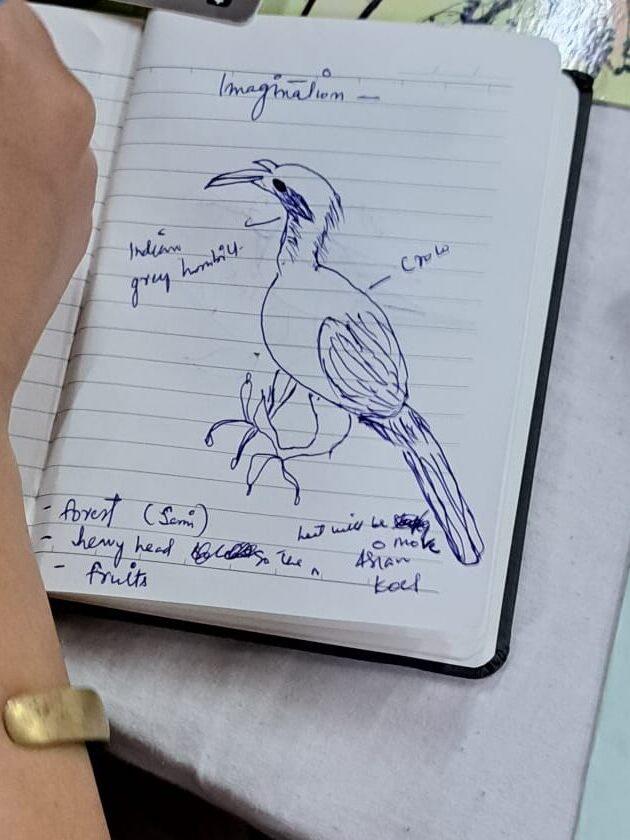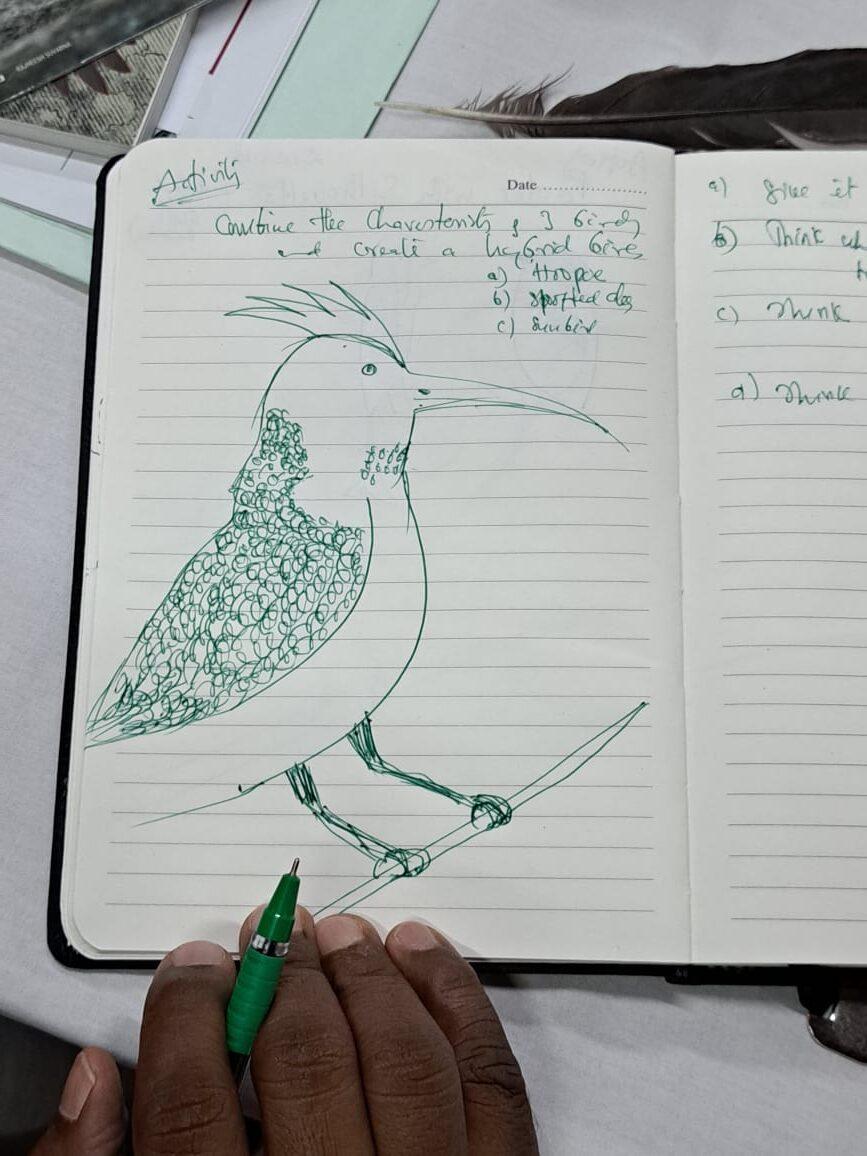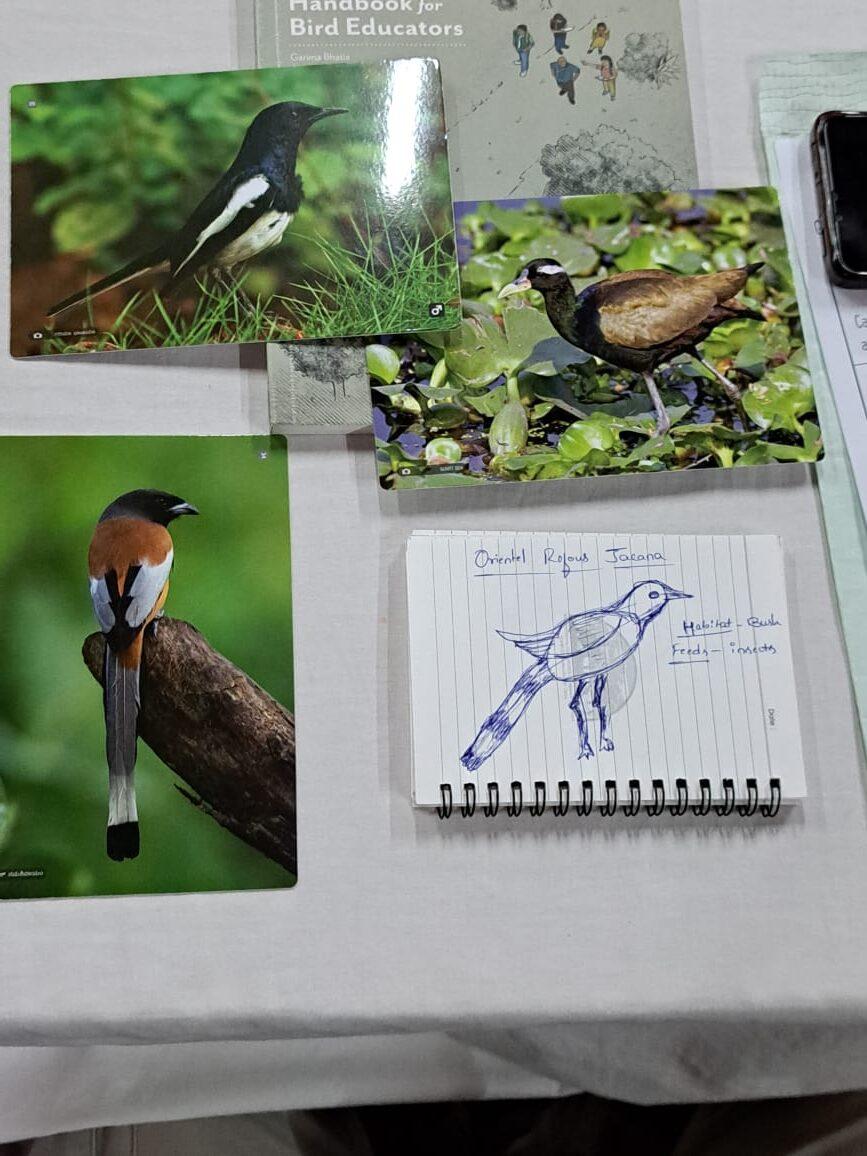Following our workshop in Kolkata this March, we hosted another in-person “How to be a Birding Buddy” event in Bangalore. Held on August 24, 2024, at The United Theological College, the workshop brought together 21 participants, including seasoned birdwatchers, beginners, and experienced educators. Our goal was to equip them with engaging activities and strategies to foster connections with children from diverse backgrounds.
Icebreakers: The Perfect Start
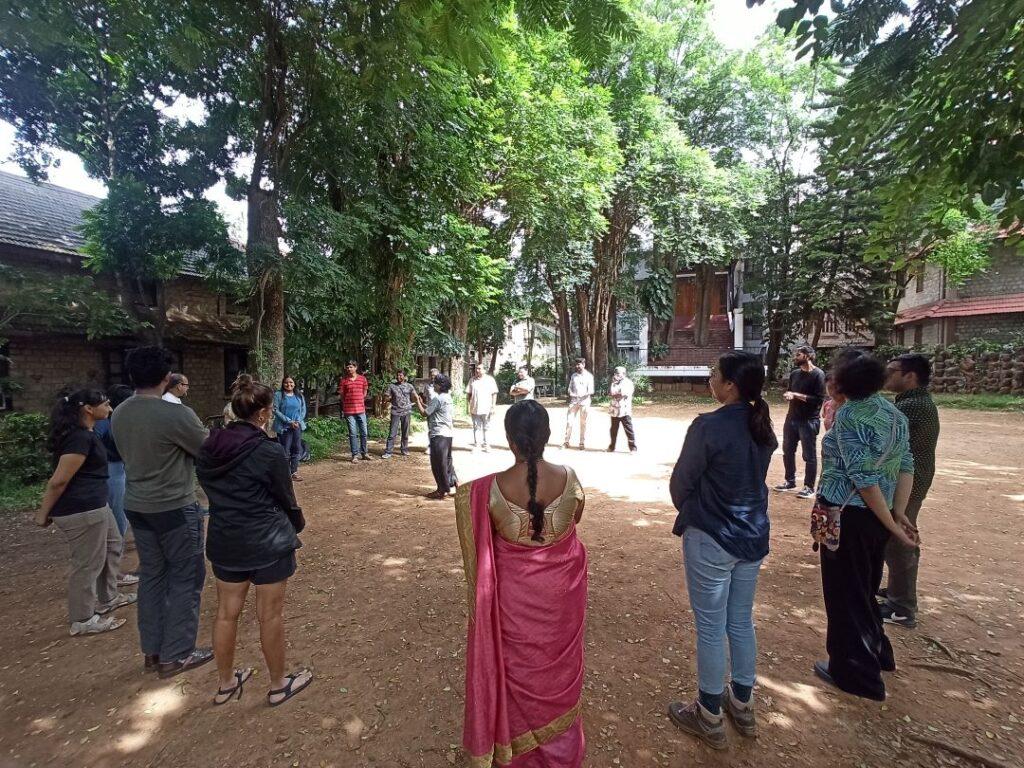
We kicked off with an icebreaker where participants introduced each other using their favourite bird and its call. The Indian Paradise Flycatcher was a particular favourite. We then discussed tips for conducting bird talks and walks which was followed by a poem-writing activity. Akhil, the youngest participant, shared an interesting story about how the bulbul became the king of birds.
Games Galore and Art Attack
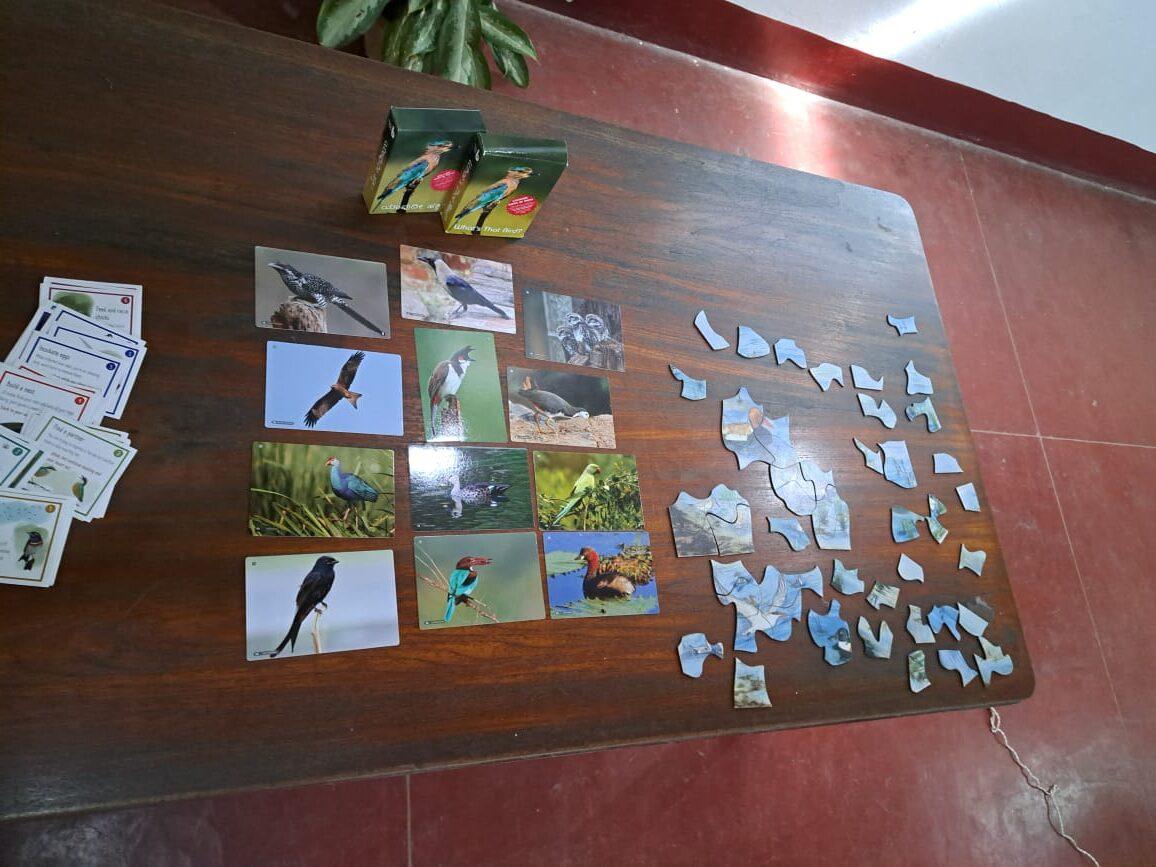
We spiced things up with a lively game of ‘Fact or Fiction,’ where participants moved to either side of the room based on whether they thought a bird fact was true or false. We also took them through different art forms and made them sketch a bird (Rosy Starling). We ended the art session by drawing imaginary birds using three randomly selected flashcards. The results? Some truly imaginative birds that were both hilarious and interesting. We wrapped up by discussing how these artistic activities could be used to spark curiosity and deeper discussions during bird walks, workshops, or talks.
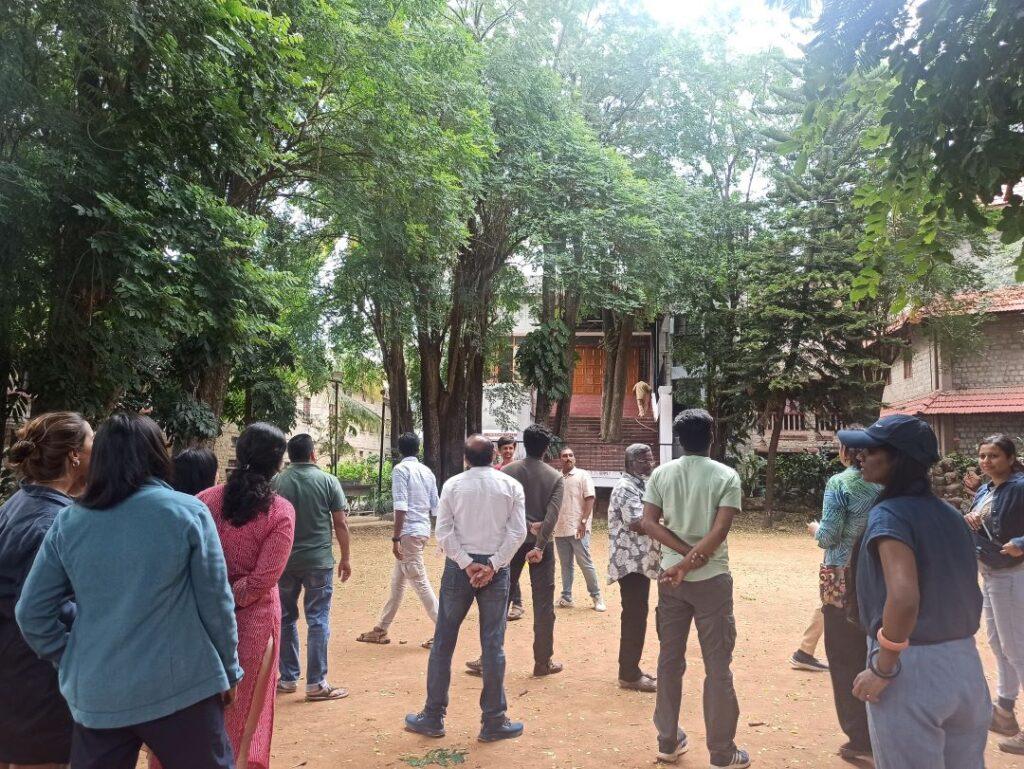
After lunch, we energised participants with the ‘Bird Survivor Game’. But nature had its own surprise in store for us—a koel chick being fed by its foster parent, a crow, right outside! Following this, we introduced participants to various games and resources that can be used to enhance their nature education skills and engage their audience. We also facilitated group discussions on innovative approaches to bring enquiry-based understanding into their programmes and addressed potential challenges they might encounter.
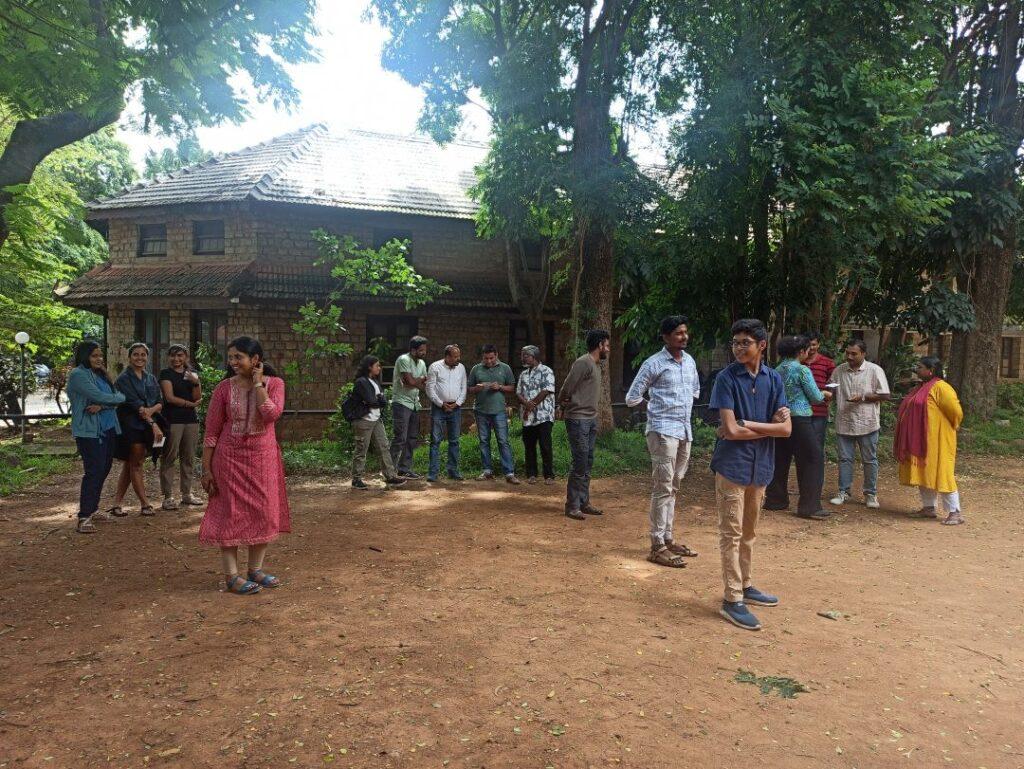
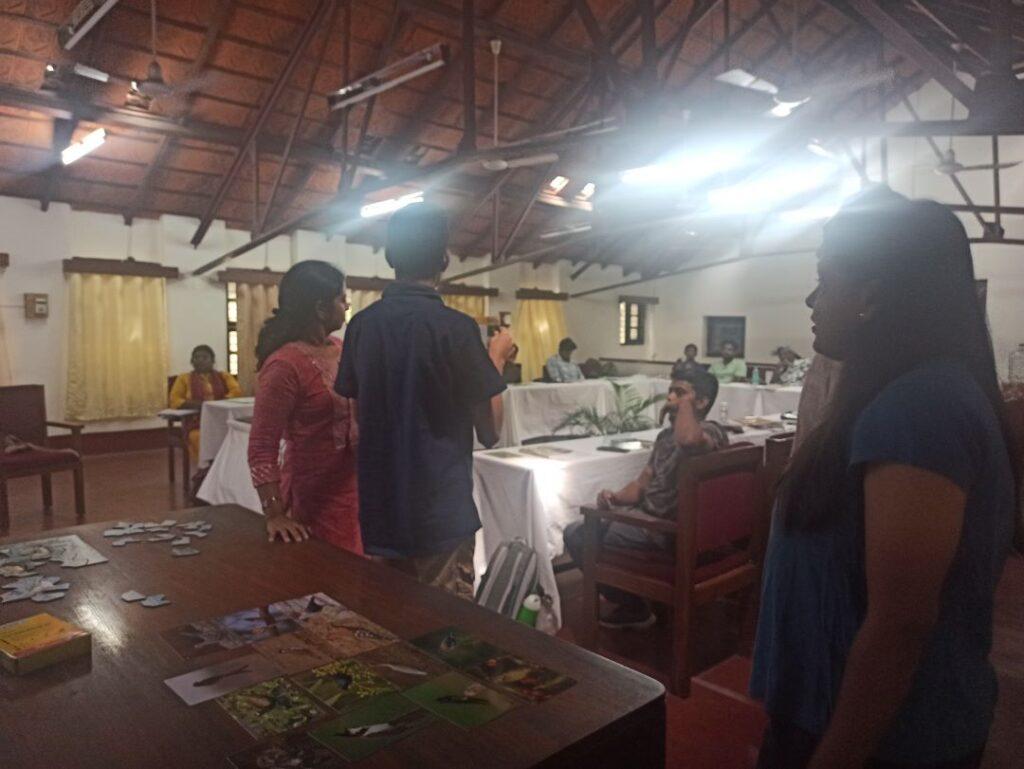
Collaborative Learning
In the end, participants were divided into groups and tasked with designing a one-hour nature engagement programme for different audiences: children from an apartment complex, an urban government school, an international school, and rural areas. This exercise allowed them to apply their newly acquired knowledge and existing experiences to create tailored engagement.
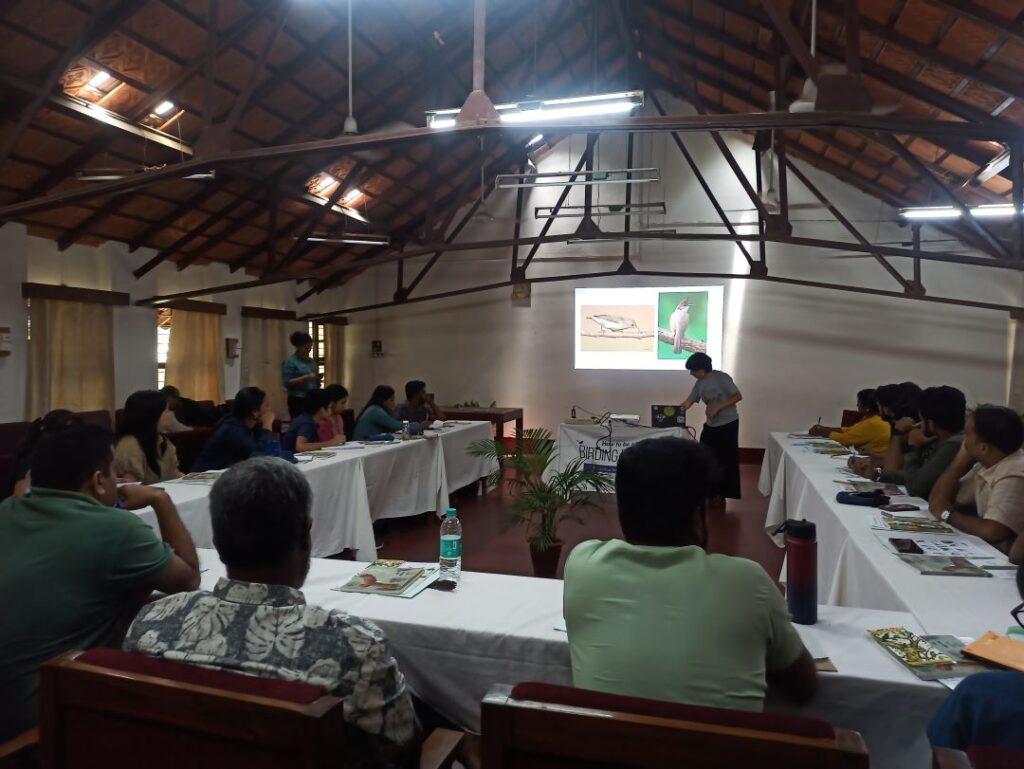
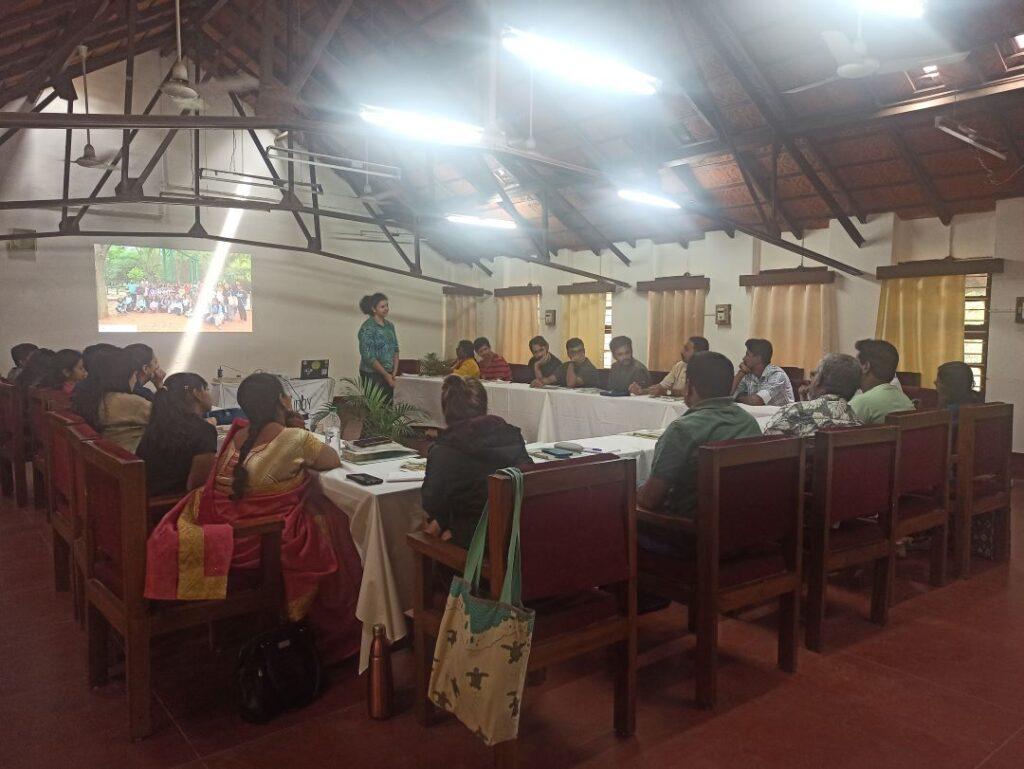
Feedback and Reflections
As the day came to a close, the feedback was overwhelmingly positive, with many expressing how the workshop had boosted their confidence in engaging children through nature education. From bird talks to art and games, participants left feeling ready to take their newfound skills and knowledge back into the world.
